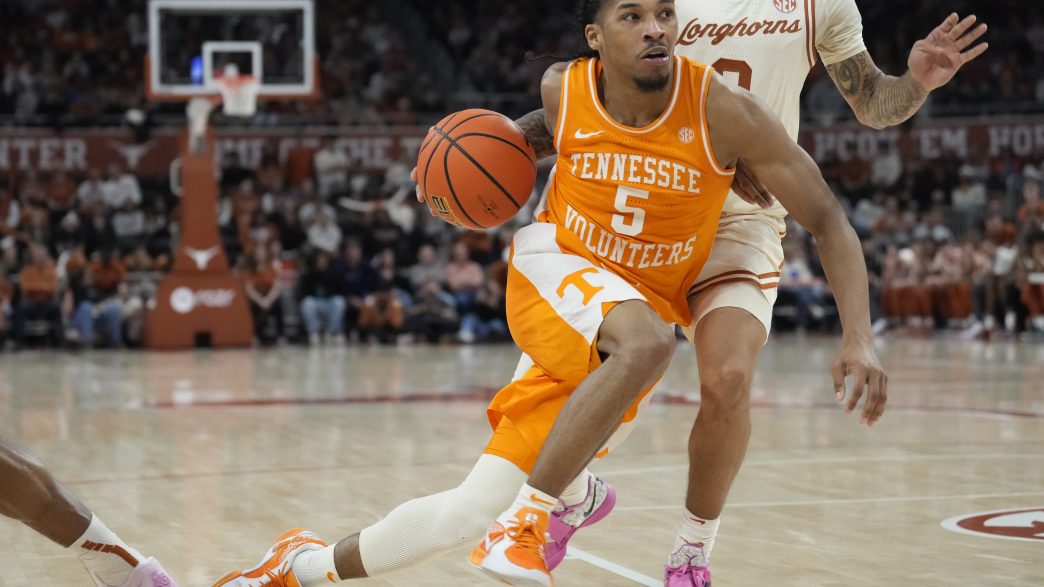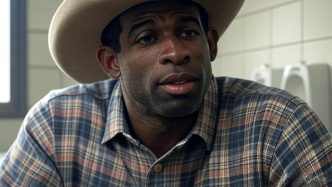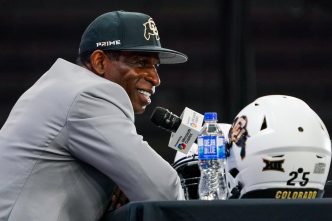In the world of coaching, motivational tactics can often take creative turns, and Tennessee Volunteers men’s basketball coach Rick Barnes demonstrated just that this weekend. When traditional approaches like benching a player for underperformance seemed passé, Barnes added a unique layer to his playbook in a recent game against the Texas Longhorns.
Chaz Lanier, a pivotal offensive asset for the Volunteers, has been lighting up the court with an average of 19 points per game and impressive shooting percentages—42% from the field and a remarkable 43% from beyond the arc. After spending the initial years of his college career at North Florida, Lanier has transitioned to Tennessee as a key scoring figure, not to mention carrying an NIL deal that highlights his market value.
However, the recent clash with Texas saw Lanier hitting a rough patch. Despite Tennessee’s narrow 74-70 victory, Lanier struggled, managing only 10 points in a hefty 34 minutes of play, and landing just 3 of his 11 field goal attempts. Things took an interesting turn right at the start of the second half—when Lanier hesitated to execute a play specifically designed for him to shoot. Barnes, who had clearly orchestrated the play with Lanier’s scoring ability in mind, made a bold decision to bench him.
Now, benching a player for not performing is nothing new in sports, but it was Barnes’ explanation post-game that grabbed everyone’s attention. Speaking to the press in Austin, he made it clear that the benching was a direct response to Lanier’s reluctance to shoot. “The first play of the second half was his shot to take, and when he didn’t, I sat him down,” Barnes explained, drawing a direct parallel to professional expectations—where players are remunerated handsomely to perform and deliver.
By invoking Lanier’s NIL earnings, Barnes underscored the expectation that comes with being a paid college athlete. In Lanier’s case, his skill set has been monetized, making Barnes’ decision something akin to a professional-level accountability measure. This incident not only solidifies Barnes’ reputation as a tactical and innovative coach but also signals a shift in college sports’ cultural landscape as the conversation around athlete compensation continues to evolve, especially with revenue sharing on the horizon.
For anyone keeping an eye on college basketball, Barnes’ approach could very well represent a new direction in athlete development and institutional expectations. As this developing narrative unfolds, it will be intriguing to see how other programs might navigate their strategies in fostering player growth while aligning with the emerging realities of athlete compensation.







